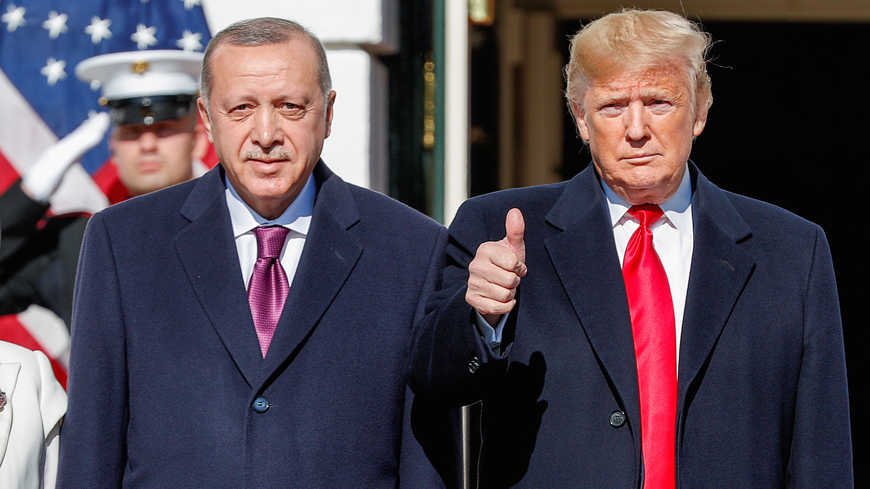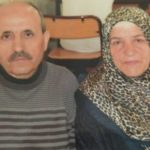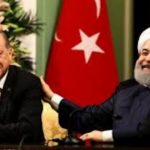In an interview with DER SPIEGEL, former U.S. National Security Adviser John Bolton discusses the case against Turkey’s Halkbank, which has been accused of helping Iran circumvent American sanctions. He says Donald Trump and Turkish President Erdoğan were in close contact about the issue.
The U.S. Justice Department suspects that Turkey’s state-owned Halkbank helped the Iranian regime circumvent American sanction on a large scale. If the bank is found guilty in its trial at a New York federal district court, observers say it could face a fine as high as $20 billion or expulsion from the SWIFT international banking system.
In an earlier trial, a witness testified that Turkish President Recep Tayyip Erdoğan was involved in the alleged sanctions violation. The Turkish government did not answer a request for comment by DER SPIEGEL. Halkbank declined to comment because of the ongoing proceedings against the bank. Former U.S. Attorney General William Barr could not be reached for a statement.
John Bolton served under Presidents Ronald Reagan and George W. Bush in the Departments of Justice and State. He served as U.S. ambassador to the United Nations from August 2005 to December 2006. Donald Trump appointed him as national security adviser in April 2018, but he soon came into conflict with the president and left the administration in September 2019.
DER SPIEGEL: Mr. Bolton, how important a subject was Halkbank in the conversations Mr. Erdoğan had with Donald Trump?
John Bolton: Erdoğan was completely focused on getting Halkbank out of the investigation and potential prosecution that it had been in for quite some time. He raised the issue repeatedly with Trump. It would be a rare conversation in person or over the phone where it didn’t come up. Erdoğan was saying constantly that the investigation was unjustifiable and should be settled or dismissed.
DER SPIEGEL: What did the deal Turkey’s leadership was trying to reach entail?
Bolton: They wanted to get Halkbank’s vice president, Mehmet Hakan Atilla, back from the United States. He had been convicted by a federal court in New York for his role in the scheme to violate U.S. sanctions against Iran. There are provisions in American law where you can remand a prisoner to prison in a foreign country on the assumption they serve the same sentence under the same conditions. It’s a pretty common practice. They also wanted either the case dismissed or the U.S. attorney in New York to agree to a settlement where Halkbank would not have to admit wrongdoing. That is the sticking point in most settlements where the prosecutors think they have a very strong case.
DER SPIEGEL: Why is that?
Bolton: Where prosecutors think they can prove unlawful behavior, they insist on admission, but then settle whatever potential penalties the bank would have to bear. That was obviously a huge area of disagreement, because if a bank has admitted to criminal activity, it has to disclose that activity. It makes it very difficult for them to raise money and has a lot of other consequences.
DER SPIEGEL: Did Turkey’s representatives bring up any potential geopolitical implications of the case?”If it had been an American company, we would have prosecuted it to the fullest extent of the law.”
Bolton: There wasn’t a lot of discussion about that. Halkbank was accused of violating our Iran sanctions and then basically lying about it. I tried to explain to Trump that if it had been an American company, we would have prosecuted it to the fullest extent of the law. To let a foreign company get lesser treatment is inconsistent. It is a fact that, in the U.S., the president, as head of the executive branch, is responsible both for law enforcement and national security, and there are cases where trade-offs can occur. But this was not one of them.
DER SPIEGEL: How did Trump react to Erdoğan’s efforts?
Bolton: He always seemed favorably inclined. Part of that, I think is the salesman at work, always being sympathetic and so on. In any number of conversations I had with him, Trump was uniformly in favor of trying to find a way to resolve the Halkbank issue and satisfy Erdoğan. That obviously ran into difficulties since what Erdoğan wanted, essentially, was vindication. And our law enforcement authorities were very, very unwilling to do that.
DER SPIEGEL: In your White House memoir, you describe an encounter between Trump and Erdoğan at the G-20 summit in Buenos Aires in late 2018. How did that encounter go?
Bolton: Erdoğan presented Trump with a brief prepared by an American law firm working on behalf of Halkbank. I never actually held it in my hands, but it looked to be 30 or 40 pages long. Trump turned the pages, went through it, didn’t read it because he turned the pages too quickly to read and said: “Yeah, looks convincing to me.””It was part of his desire to do favors particularly for authoritarian leaders.”
DER SPIEGEL: What drove Trump in all of this? There was some speculation that it might have been his business interests in Turkey.
Bolton: People ask me all the time to give them an example of how Trump favored his business interests in his dealings with international leaders. And I just didn’t see it. That’s not to say that he didn’t, that there weren’t any meetings that I didn’t know about. But in this case, I saw no evidence of any kind of exchange that might have favored his business interests. It seems more likely to me that Trump wanted to make an impression on Erdoğan. It was part of his desire to do favors particularly for authoritarian leaders. He was trying to show Erdoğan that he was going to do him a favor, perhaps in order to ask for a personal favor in return at some future date.
DER SPIEGEL: How would you describe the relationship between Trump and Erdoğan in general?
Bolton: When I came into the White House in April 2018, the American Pastor Andrew Brunson was still in jail in Turkey. The major focus in U.S.-Turkish relations at the time was to get him released, which ultimately we were able to do. During that time, the relations between Erdoğan and Trump weren’t great. Sanctions were imposed, currency restrictions put in place, we were working very hard to get Brunson released. Once that took place, the light switch turned and it became a very good personal relationship between the two. To me, it was evidence of the very transactional nature of Trump’s approach to life: He could be adversaries with somebody, and in a second it could turn into a very close personal relationship.
DER SPIEGEL: How did the Trump Administration then get involved in the prosecution of Halkbank?
Bolton: One of the things Trump said to Erdoğan in Buenos Aires was: “When I get my people in, then we’ll take care of it.” He basically meant Bill Barr who was to be confirmed as Attorney General. Once he came in, the Halkbank negotiations were turned over to Barr. I think that, ultimately, because Halkbank believed they had a direct line of communication to the Oval Office, they did not negotiate very willingly with the Justice Department at all, and the department decided to proceed with the prosecution.
DER SPIEGEL: Why did a deal in the Halkbank case ultimately fail?
Bolton: The prosecutors in the Southern District of New York wanted an admission of liability. They didn’t think Halkbank deserved much leeway because they hadn’t cooperated with the investigation.
DER SPIEGEL: Why did Trump ultimately refrain from getting involved any further?
Bolton: I think Barr convinced him that he would take a serious look at what treatment for Halkbank would be appropriate. Barr must at some point have gone to Trump and said, “Look, I’ve tried to negotiate this and we just can’t get something we find acceptable. So we’re going to have to go ahead with the prosecution.” At that time, of course, Barr was in Trump’s favor and Trump probably didn’t want to push him any further.
DER SPIEGEL: What should we to expect with the Halkbank case going forward?
Bolton: Now, it’s essentially in the hands of the Justice Department and the courts. It’s possible that Erdoğan will try again with Biden. But according to media reports, the two don’t have a good relationship. It could also be that other countries’ financial enforcement institutions take a look at it. We’ve heard a lot about potential corruption involving Halkbank. If the bank is as loose with other people’s laws as it was with our Iran sanctions, others could get involved in looking into its conduct as well.”I have no reason to think that Biden is going to get involved.”
DER SPIEGEL: Is it possible that the Biden White House gets involved?
Bolton: I have no reason to think that Biden is going to get involved. This is a pretty straightforward law enforcement matter. As a general proposition, the best thing for the president to do is allow the prosecution to go forward, unless there is some overarching national security interest, which I never saw in this case.
DER SPIEGEL: Could possible future negotiations with Iran become such a national security issue?
Bolton: I suppose the administration is so interested in getting back to the nuclear deal with Iran that a lot of things would be possible. But this case is one or two steps removed from the deal. I’d be surprised if anything changed at this point.
DER SPIEGEL: What about the prosecutors in the Southern District of New York? They seemed, at least at one point, to be amenable to some kind of deal provided that there was an admission of wrongdoing by Halkbank. Would that still be on the table?
Bolton: Generally speaking, a settlement is still possible right up until the end, even while the case is in trial. But I don’t know of anything at this point that would divert the prosecutors from just proceeding with the trial and trying to win.
Interview Conducted By Alexander Sarovic
Source: Der Spiegel



